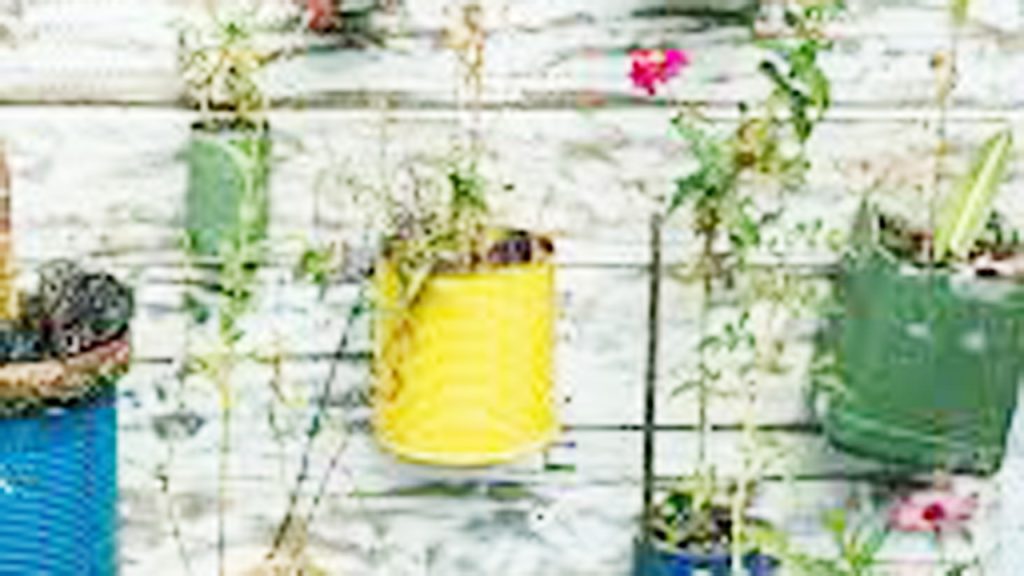Gardens are places of beauty, relaxation, and productivity, but they also come with their fair share of wear and tear. Tools break, pots crack, and furniture weathers beyond repair. Instead of discarding these broken items, why not recycle or repurpose them? Recycling garden items is not only eco-friendly but also a great way to add unique charm to your outdoor space.
Let me walk you through some practical and creative ways to recycle broken garden items, turning them into treasures rather than trash.

Image by moowy.co.uk
Why Recycling Garden Items Matters
Recycling broken garden items is essential for reducing waste and conserving resources. Landfills are overflowing, and every little effort to reuse or recycle helps the environment. Additionally, giving your garden tools, pots, or furniture a second life can save you money and inspire your creativity.
If you’re looking to reduce your carbon footprint or just spruce up your garden with unique elements, recycling is the way to go.
Creative Ways to Recycle Common Garden Items
Broken Pots
When clay or ceramic pots break, it might feel like their journey ends there. However, broken pots are incredibly versatile:
Miniature Garden Edging: Use the shards to create a border for flower beds or paths. The irregular shapes give a rustic, natural look.
Plant Drainage: Place pot shards at the bottom of new planters to improve drainage.
Mosaic Projects: Gather pieces from multiple broken pots and create colorful mosaics on garden tables, stepping stones, or walls.
Damaged Garden Tools
Garden tools that have seen better days can still serve a purpose:
- Decorative Wall Hangings: Mount old rakes, shovels, or shears on a garden wall for a vintage aesthetic.
- Planter Holders: Bend an old rake head into a unique wall-mounted holder for small pots.
- Tool Art: Weld or glue tools together to create garden sculptures or trellises.
Worn-Out Garden Furniture
Even if your garden furniture is no longer sturdy enough for sitting, it can find new life:
- Planters: Transform broken chairs or tables into unique plant holders.
- Garden Shelves: Use pieces of wooden furniture to build rustic shelves for potted plants or gardening supplies.
- Fairy Gardens: Repurpose smaller furniture pieces into magical settings for miniature plants and figurines.
Cracked Hoses
Hoses that have sprung too many leaks can still be useful:
- Tree Ties: Cut sections to tie young trees to stakes gently.
- Tool Grips: Wrap sections of hose around tool handles for better grip and comfort.
- Garden Borders: Lay hoses along garden beds as edging.
Rusty Metal Items
Rust can’t stop you from giving metal items a second chance:
- Garden Art: Bend old pipes or metal rods into creative sculptures.
- Trellises: Turn rusty fencing or gates into supports for climbing plants.
- Bird Feeders: Use metal buckets or pans to create hanging bird feeders or water bowls.
Shattered Glass
Broken glass may seem dangerous, but it can add elegance when handled correctly:
- Stepping Stones: Embed colorful glass pieces into concrete stepping stones.
- Garden Lights: Use glass shards to decorate lanterns or candle holders.
- Glass Mulch: Smooth, tumbled glass can be used as a decorative ground cover.
Step-by-Step Guide: Recycling a Broken Garden Pot
Let’s take a common item, like a broken garden pot, and walk through the process of recycling it:
- Clean the Pieces: Wash the broken pot to remove dirt and debris. Let it dry completely.
- Assess the Damage: Determine how the pieces can be used—as edging, drainage material, or part of a mosaic.
- Smooth the Edges: Use sandpaper to smooth sharp edges for safety.
- Arrange Creatively: Lay out the pieces in your desired pattern or use them to border your plants.
- Secure If Necessary: If creating a mosaic, use strong adhesive or grout to hold pieces in place.
With a little effort, you’ve turned something destined for the trash into a functional and attractive garden feature.
Benefits of Recycling Garden Items
Recycling isn’t just good for the environment—it benefits your garden and creativity too:
- Cost Savings: Reduce the need to buy new garden items.
- Unique Aesthetic: Create one-of-a-kind pieces that reflect your personality.
- Eco-Friendly: Minimize your contribution to landfill waste.
- Therapeutic Activity: The process of repurposing items can be a rewarding and relaxing hobby.
Simple Recycling Ideas for Beginners
If you’re new to recycling, start small. Here are some easy projects to try:
| Broken Item | Recycling Idea |
|---|---|
| Clay pots | Drainage material or fairy gardens |
| Wooden crates | Raised beds or storage boxes |
| Metal watering cans | Unique planters |
| Old tires | Stackable planters or swings |
| Worn garden gloves | Stuff them for scarecrow hands |
Recycling Tips for Gardeners
To make the most of your recycling efforts, keep these tips in mind:
- Keep Safety First: Always wear gloves and safety glasses when handling sharp or broken items.
- Plan Ahead: Before starting a project, sketch your idea to avoid wasting materials.
- Use the Right Tools: Invest in basic tools like sandpaper, adhesives, and cutting equipment.
- Embrace Imperfections: Recycled items often have a rustic charm that adds character.
Conclusion
Recycling broken garden items is a creative and fulfilling way to breathe new life into your outdoor space. Not only do you help the environment by reducing waste, but you also save money and add a personal touch to your garden.
If you’re crafting mosaic stepping stones or repurposing old tools as decor, the possibilities are endless. Take a look around your garden and see what broken items you can transform—you’ll be surprised at what you can create.
FAQs
Can I recycle plastic garden pots?
Yes, many recycling centers accept plastic pots, or you can repurpose them as storage containers or seed starters.
How do I handle sharp edges on broken items?
Use sandpaper or a file to smooth sharp edges, and always wear protective gloves.
What should I do with broken glass from my garden?
Collect it carefully, smooth the edges, and use it for decorative purposes like mosaics or ground cover.
Are there items that should not be recycled?
Avoid recycling items treated with toxic chemicals, such as pressure-treated wood, as these can harm your garden.
How can I make recycled items weather-resistant?
Apply a clear waterproof sealant or paint to protect them from the elements.

I’m Marissa Lynn, the proud author behind GardeningProperty.com! With a deep-rooted passion for all things green and growing, I’ve dedicated years to mastering the art and science of gardening.
From nurturing vibrant flowerbeds to cultivating thriving vegetable gardens, I love sharing practical tips, creative ideas, and proven techniques to help others create their dream outdoor spaces.